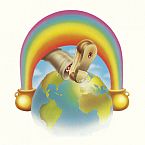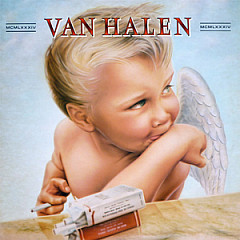Jack Straw

Songfacts®:
- "Jack Straw" is about two rambling outlaws named Shannon (no last name specified) and Jack Straw. The song has the Dead's usual wistful melodicism, but the duo's exploits aren't as cute as the sound implies. The friends rob a railroad watchman and murder people. Similar to "Candy Man," "Jack Straw" is essentially a murder ballad, but one played so sweetly that the killers seem endearing and the killing cartoonish.
- The song is sung from two or three perspectives: that of Shannon (sung by Jerry Garcia), Jack Straw (sung by Bob Weir), and possibly a nameless narrator (sung in unison by Garcia, Weir, and Phil Lesh). We say "possibly" because that chorus-sung perspective is never positively identified as a separate perspective, and it could be driven purely for the sake of music, with no implications as to the characterization. This distinction regarding the third perspective matters at the end of the song.
In the song, Shannon and Straw are on the run. They jump trains from Texas to Santa Fe, New Mexico, to Cheyenne, Wyoming, and then to Tulsa, Oklahoma, to settle "one old score." Last we see of them they're half a mile out of Tucson, Arizona, heading into an uncertain future. Well, some believe we are left with only Jack Straw at that point, but that part of the story is complicated. - From campfire debates to internet message boards to the authoritative Greatest Stories Ever Told site run by Dead scholar David Dodd, there's been some debate over one aspect of the song. Does Jack Straw kill his buddy Shannon?
It's clear throughout the song that Jack Straw isn't happy that Shannon killed a man. It "hurts his ears" and "burns his eyes." He also states that if Shannon is going to cut a man down, "it might as well be me." It's a strange statement that's made clearer a few verses later:
Ain't no place a man can hide, Shannon
Keep him from the sun
Ain't no bed will give us rest, man,
You keep us on the run
Straw's point seems to be that the fugitive life is no life at all, and he harbors some resentment, or at least regret, towards his friend.
This feeds into the theory that Straw kills Shannon near the end of the song.
Jack Straw from Wichita
Cut his buddy down
Dug for him a shallow grave
And laid his body down
Dodd proposes an alternate theory that perhaps the verse means that Straw cut Shannon down from a noose and gave him an honorable burial.
Both theories rest on the idea that the buddy Straw cut down was Shannon, but there's not much reason to assume that. The victim is never identified as Shannon and, more importantly, the very next verse (also last verse in the song) goes:
Half a mile from Tucson
By the morning light
One man gone and another to go
My old buddy you're moving much too slow
Those lines are sung by the Garcia-Weir-Lesh chorus, so many have assumed it means it's coming from a third perspective. It is possible, though, that the chorus still represents Straw's perspective, and he's still talking to Shannon.
In that case, the buddy that Straw cut down may be something totally new to the story, and may hark back to that "old score" in Tulsa.
No matter what interpretation is correct, like any work of great literature, the narrative of "Jack Straw" has left enough ambiguity that fans can continue to fill in the blank spaces with their own interpretations. - The lyrics are credited to Dead lyricist Robert Hunter, but the genesis for the song came from Bob Weir. He drew inspiration from Of Mice and Men. His memory seems a little blurred on which version it was, as he once attributed it to the 1937 novel by John Steinbeck and at another time attributed it to "an old" film version, presumably referring to the 1939 film starring Lon Chaney, Jr., Burgess Meredith, and Betty Field.
The characters in Of Mice and Men aren't outlaws until the end of the book, and even then the murder is a horrible tragedy more than the result of a willfully malignant person. So, "Jack Straw" isn't a retelling of Of Mice and Men. The story just launched Weir into thinking about two Depression-era tramps on the run.
Weir may have written some lyrics, too. In Hunter's book of collected lyrics, Box of Rain, some of the lyrics are italicized. In other instances in the book, italicization indicated the words were by someone other than Hunter. In "Sugar Magnolia," Hunter explicitly states that the italicized lyrics are from Weir.
The italicized lyrics likely from Weir are:
Hurts my ears to listen, Shannon
Burns my eyes to see
Cut down a man in cold blood, Shannon
Might as well be me
We used to play for silver
Now we play for life
One's for sport and one's for blood
At the point of a knife
Now the die is shaken
Now the die must fall
There ain't a winner in this game
Who don't go home with all
Not with all...
Ain't no place a man can hide, Shannon
Keep him from the sun
Ain't no bed will give us rest, man,
You keep us on the run - In Goin' Down the Road, Hunter tells author Blair Jackson that he didn't feel comfortable with the cheers the crowd would give for the line "we can share the women, we can share the wine." He wanted it to be clear that those were the words of a character and not his own words or thoughts. The context seems missed, anyway, because that lifestyle is what leads the two into lives as fugitives. It's not something that the song romanticizes or glorifies.
-
- It's not clear why the name Jack Straw was selected, but it's the name of a real historical figure. Straw, along with John Ball and Wat Tyler, led the Peasants' Revolt in England in 1381. It's believed Straw was executed shortly after the revolt saw its brief, bloody success come to an end.
During the trip to London that gave birth to "Ripple," "Brokedown Palace," and "To Lay Me Down," Hunter lay in the grass with a former lover in Hampstead Heath across from a pub named Jack Straw's Castle. That was only a couple years before the recording of "Jack Straw," so it's feasible that that was where he first got interested in the figure. - The Dead first recorded this song on May 3, 1972, at L'Olympia in Paris, France.
- The Dead performed the song at least 476 times, making "Jack Straw" the 11th-most performed song in their repertoire. Tenth is "Truckin'" and 12th is "Good Lovin'" by The Young Rascals.
Comments: 2
- Curtis from MiLove the breakdown of Jack Straw, one of my favorite live songs. Song credits seem to go to Weir and Hunter, certainly a group song. Love the way Bob and Jerry alternate vocals. Classic.
- Dusty from Idaho The song Jack Straw is about a Hell’s Angels enforcer sent by the Club, to take out two other members for stealing.
More Songfacts:
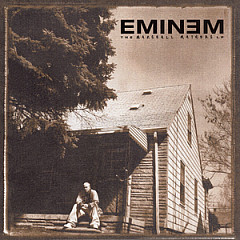
StanEminem
Thanks to Eminem's song, the word "stan" was added to the Oxford American Dictionary in 2017. It means an obsessive fan.
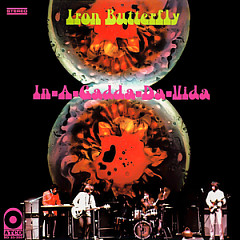
In-A-Gadda-Da-VidaIron Butterfly
"In-A-Gadda-Da-Vida" was supposed to be titled "In The Garden Of Eden," but someone in the studio wrote down the title phonetically, and it stuck.
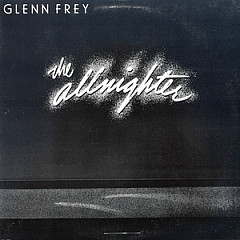
Smuggler's BluesGlenn Frey
Glenn Frey of the Eagles played a bad guy in a 1985 episode of Miami Vice based on his song "Smuggler's Blues."
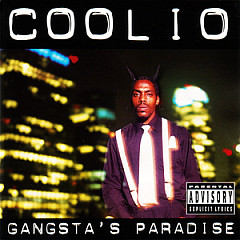
Gangsta's ParadiseCoolio
Coolio's "Gangsta's Paradise" was the #1 single in Australia for 13 weeks. It holds the record for the longest running chart topper Down Under since the first ever ARIA Chart was listed in 1983.
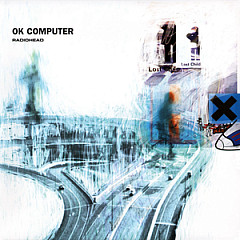
Paranoid AndroidRadiohead
Radiohead's "Paraonid Android" was written after a confrontation in a Los Angeles bar with an irate woman.
Editor's Picks
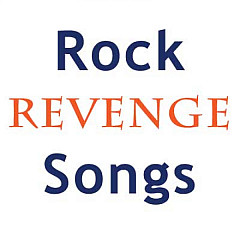
Rock Revenge SongsMusic Quiz
John Lennon, Paul Simon and Lynyrd Skynyrd are some of the artists who have written revenge songs. Do you know who they wrote them about?

Jim Adkins of Jimmy Eat WorldSongwriter Interviews
Jim talks about the impact of "The Middle" and uses a tree metaphor to describe his songwriting philosophy.

Scott Gorham of Thin Lizzy and Black Star RidersSongwriter Interviews
Writing with Phil Lynott, Scott saw their ill-fated frontman move to a darker place in his life and lyrics.

Jack Blades of Night Ranger and Damn YankeesSongwriter Interviews
Revisit the awesome glory of Night Ranger and Damn Yankees: cheesily-acted videos, catchy guitar licks, long hair, and lyrics that are just plain relatable.

WeezerFact or Fiction
Did Rivers Cuomo grow up on a commune? Why did they name their albums after colors? See how well you know your Weezer in this Fact or Fiction.
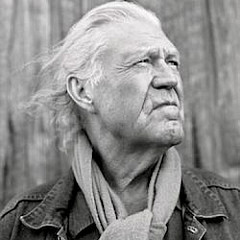
Billy Joe ShaverSongwriter Interviews
The outlaw country icon talks about the spiritual element of his songwriting and his Bob Dylan mention.

